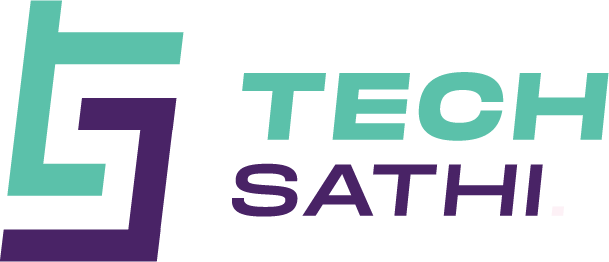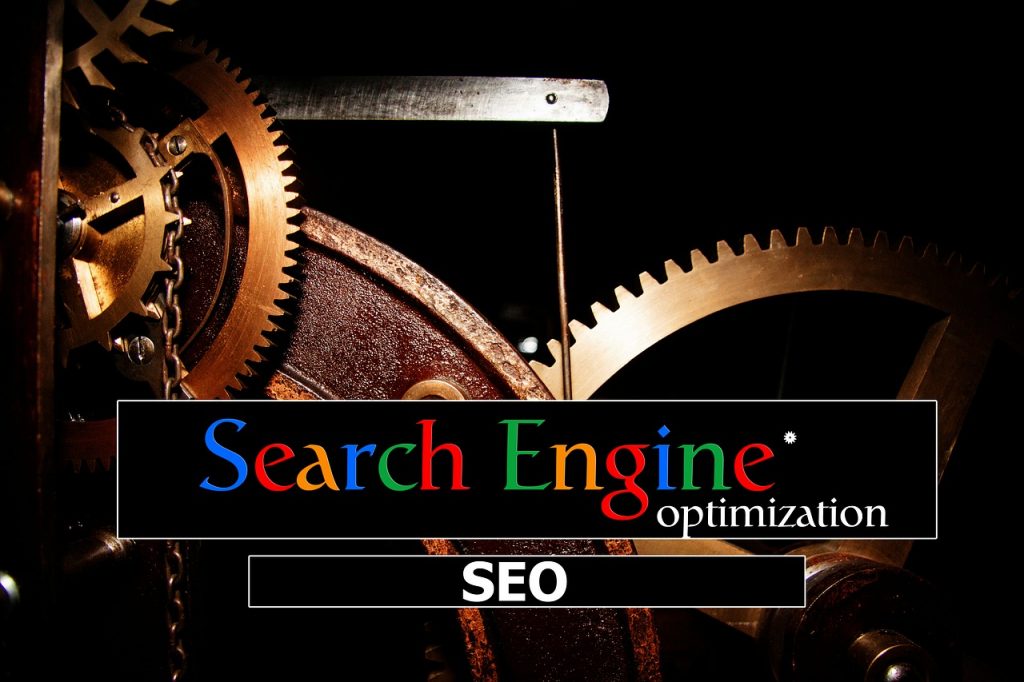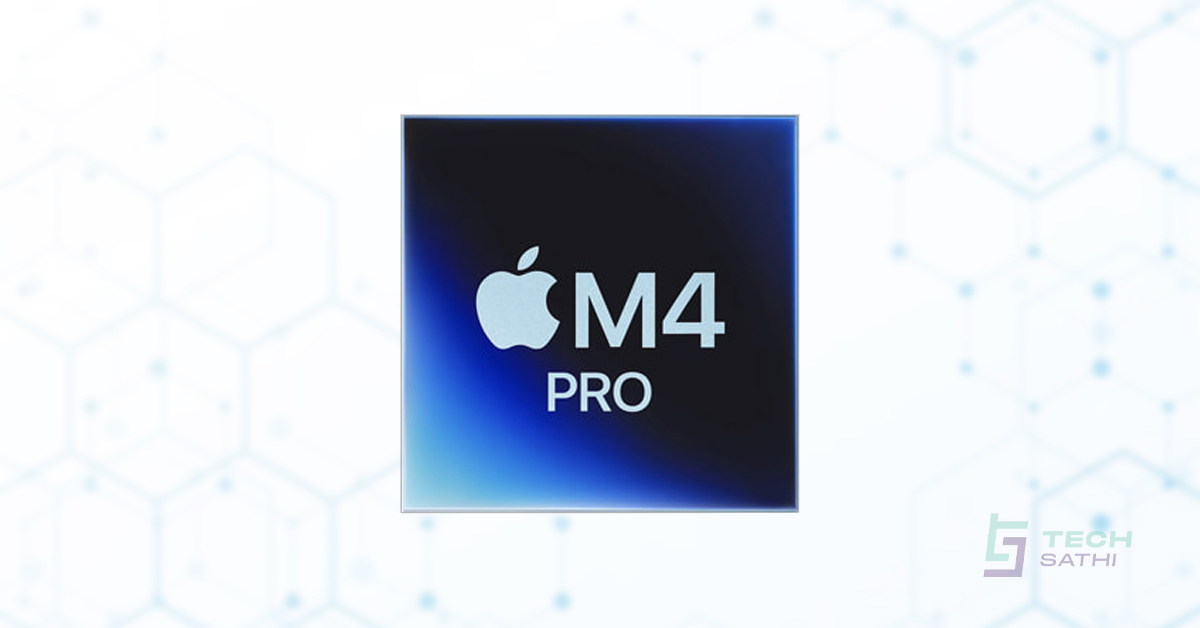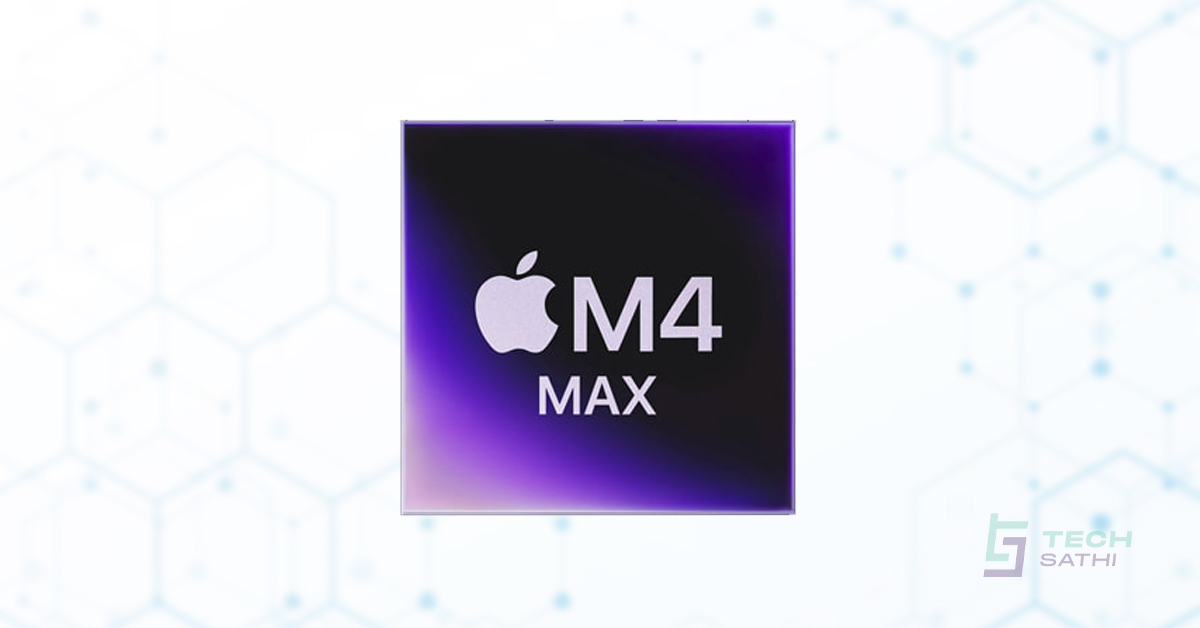What the hell is SEO?
Search engine optimization (SEO) comprises a set of methodologies used to increase unpaid (organic) traffic to your personal or business website. You could improve both the quality and quantity of your visitors through these methodologies.
A layman’s way of thinking about it could be that SEO involves getting your website at the top of “search engine results page (SERP)”. One could target regular search as well as image, video, academic searches, etc.
But, what is a search engine?
A search engine is a web application that crawls and maintains a database of web contents so users can easily find relevant information for the web. Google is a search engine. It’s widely and extensively used. Apart from Google, there are other search engines such as yahoo search, bing, baidu, yandex, duckduckgo etc.
So, SEO is about understanding how search engines work?
Not quite. SEO also involves understanding how people behave and what kind of information catches their attention. What kind of information are your target audience looking for? What kind of answers are they seeking? What kind of words are they using while seeking for these answers? Search engines are only one side of the coin. What is more important is always the people that are using these search engines to find relevant information.
How do these search engines work?
All search engines crawl, index and rank web contents. The algorithm each search engine uses for these tasks is different. How a search engine does it under the hood depends upon the developers of these engines.
Crawling
A web crawler is a program built into search engines that browses the web in a hunt for content. Crawlers identify the hyperlinks in web content and move through them to find content that search engines can later index.
Indexing
Search engines download data from webpages and store it in a database to be able to provide relevant results to their users. The process involved in this is known as indexing. Web content downloaded is processed to be displayed in the search results during the indexing process.
Ranking
In this process, the results are ordered according to their relevance. It is ranked in the order of most relevant to the least relevant. What best answers any given user’s query?
What makes a website content rank higher on the Search Engine Results Page (SERP)?
How a page ranks on a search engine depends upon the algorithms used by the search engine. These algorithms keep on changing and updating so a better strategy is always to think from the perspective of a user. The rankings also change depending upon user behavior. Search engines try to provide the most relevant information to their users up top. Various factors might come into play on how these web pages are ranked including the user’s location, the language of preference, search history, etc.
What are some of these ranking factors?
Some of the factors that are important for ranking are listed below.
- Quality of content. Does the content answer relevant questions that a user might have? Is it engaging? Is it readable?
- Amount of content. Long-form content tends to perform better in search engine rankings. It’s also said that it establishes the authority of the website. The minimum recommended content length by Yoast is 300 words.
- Information about the website and website’s content writer. An “about us” page and a short description of the content maker is important.
- How reputed the website is and how reputed the website’s content creator is? It would be less likely that people would read Techsathi’s reviews if Techsathi didn’t have a reputation in the market.
- User’s behavior on the page. How much time do users spend on the content? Do they look for other results on the SERP page?
- The intent of the search. What is the intent behind the user’s search query? Are they looking to buy something? Are they looking to learn something?
- Page speed. How fast the website is and how fast does the content page load is another crucial ranking factor.
- Secure HTTP aka HTTPS. Google mentions HTTPS as a ranking factor on their blog.
- User experience and mobile-friendly. 91% of internet users seem to use their mobile phones to go online at some point. Also, from July 2019 Google started mobile-first indexing practice.
What is E-A-T? And, what about E-A-T? Is it a ranking factor as well?
E-A-T’s been a buzzword in SEO since the recent past. Everybody and their grandmother is talking about it. E-A-T stands for expertise, authority and trustworthiness.
Expertise: The main content creator needs to be an expert in their field.
Authority: Are the content creator, the website, and the content itself sort of leading in that area?
Trustworthiness: Are the content creator, website and the content trustworthy? Do people trust them to provide relevant information and accurate information? For eg. A medical journal by a doctor versus a nobody.
There seems to be a correlation between E-A-T and rakings.
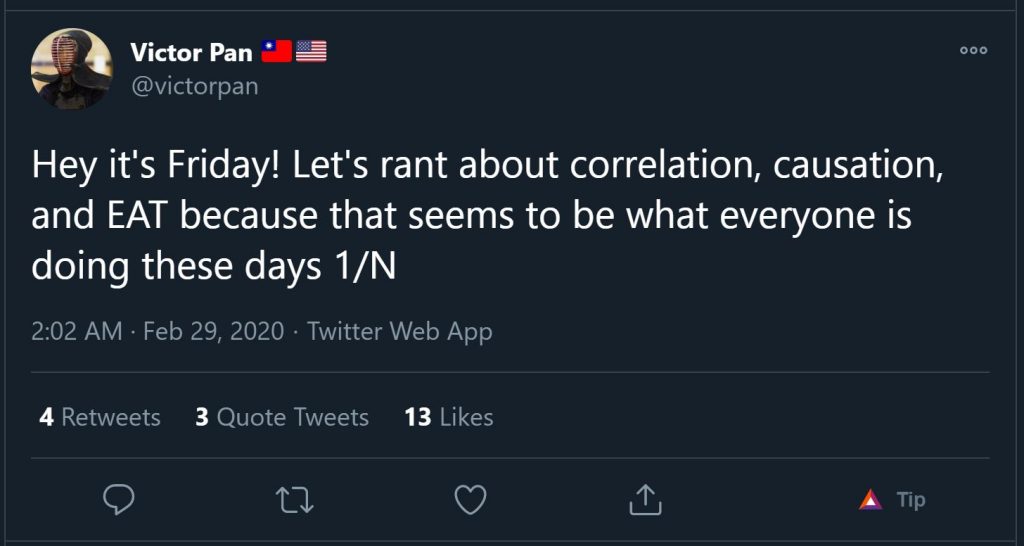
Victor Pan’s tweet thread explains it beautifully. There’s no way to measure EAT. There’s no single google algorithm that’s affecting EAT. If we’re to look for these directly measurable and changeable actions then no EAT is not a ranking factor.
Although taken in a broad sense of an indirect impact, EAT could be thought of as a ranking factor. We don’t know the specifics of how actually search engine AIs work and it could be way to think about own’s content.
Cyrus Shepard in his blog Is Google E-A-T Actually a Ranking Factor? argues that there are multiple school of thoughts and multiple ways to think about it. But, by the end of the day EAT is meaningless because it can mean anything. What does it mean to improve EAT? Does it mean that you need to start writing better content? Does it mean that you need to hire experts as your content writer? What’s more important for an organization is what’s measurable and actionable.

